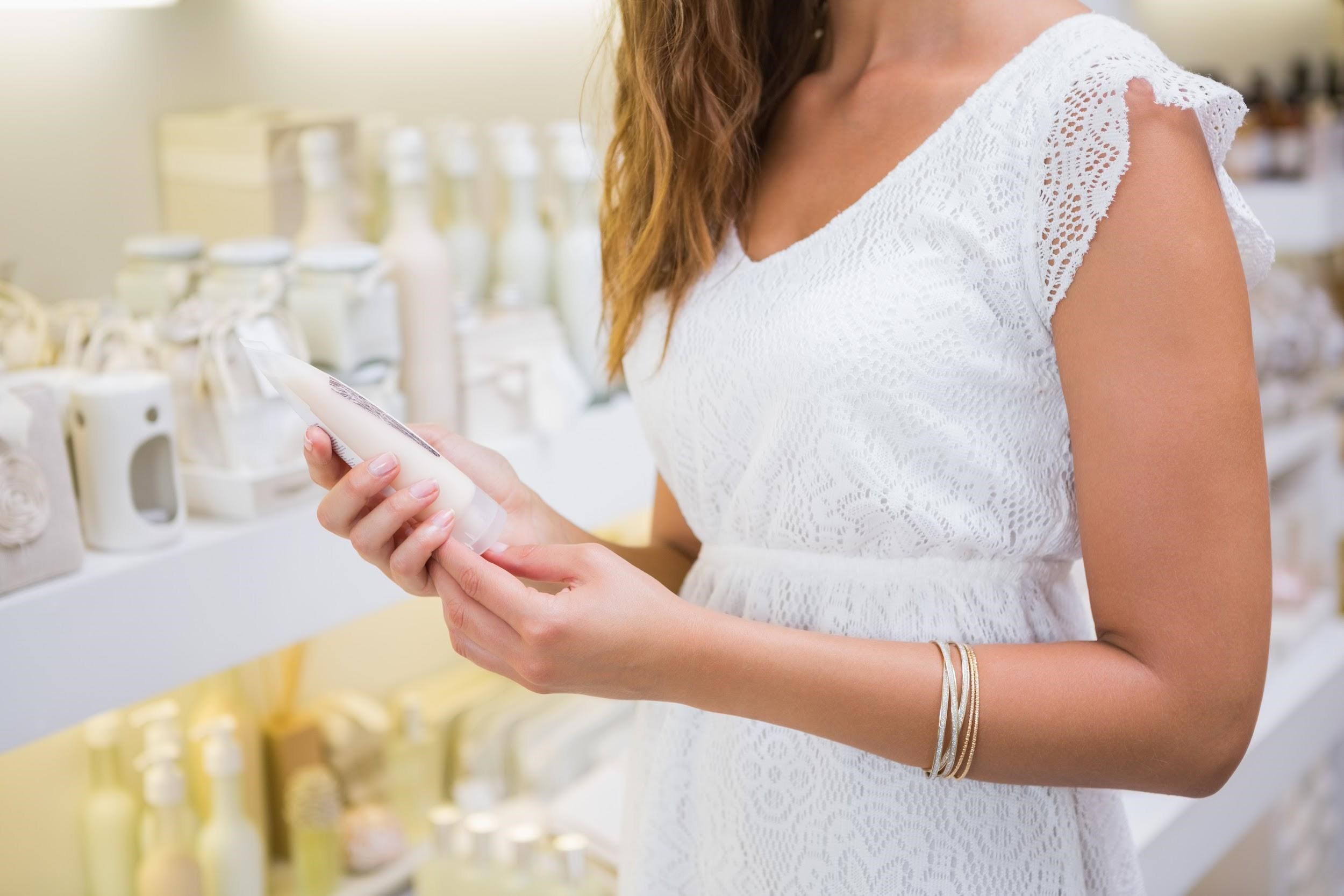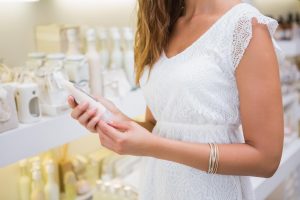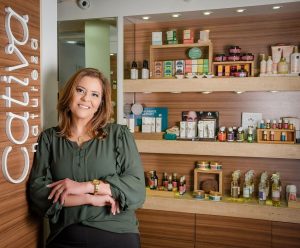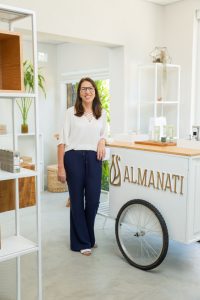
IBD client companies comment on consumer acceptance, challenges and future plans
Brazil occupies today the third position in the world ranking in the field of beauty and personal hygiene. We are a consumer eager to receive news and varieties of appearance care products. This scenario is very competitive for brands in the area. And a growing trend is that of organic cosmetics.
According to data from the organization of Bio Brazil Fair and Natural Tech, the largest organic trade fair in Latin America, this Brazilian market of organic products with food and cosmetics moves over R $ 4 billion per year, with average annual growth of 20%. .
At this year’s event, IBD Certifications CEO Alexandre Harkaly recalled that Brazil already has 19,000 organic producers. Therefore, participating in major events gives even more visibility to those who operate in this segmented market and strengthens the entire production chain.
Cativa Natureza, a pioneer in the marketing of organic cosmetics in Brazil, reports the change in the profile of its consumer. “Mainly because we are in a growing trend of conscious consumption, with less environmental impact and greater contact with nature, seeking organic and vegan cosmetics as an alternative to formulations and their health risks,” said Rose Bezecry, director of the institution.
Engaged in market research since 2011, Almanati also sees major changes in the acceptance of organic products. “We came out of a scenario where almost nobody knew and today there are people looking to know more about product options, composition and performance,” says Maria José Viesi, founder of the company.
In addition, the following IBD client companies also attended the fair: Weleda, Organic4, Natural Organic, AhoAloe, Captive Nature, and Biowash.
The Consumer Profile

LEGEND: The consumer profile has changed and the organic has gained more and more space in the cosmetics market. Credits: FreePik
The current trend is demanding quality, commitment to the environment and healthy eating. Vegan and non-GMO (genetically modified organism) products are also gaining increasing demand. Therefore, the consumer profile consists of those who research, read labels, demand sustainable actions, be aware of the safety and benefits of a product before buying it.
The craving for new products is always present, but the organic market is still keeping up. All companies are always launching news in the sector.
A great new action of CATIVA is the collection of packaging used by its consumers. By returning them, buyers get a percentage off. This makes it possible to carry out an even bigger project, with the reuse of packaging and the elaboration of a soap dish made 100% with recycled plastic.
The IBD Certificate
A very interesting point is how these companies view IBD certification. “I have always understood it as a choice that would set the standard for our R&D, and it has also given us a great understanding of the production chain and the market. For us, the requirements were a guide in choosing suppliers and ingredients, ”comments Maria José.
Certification begins with choosing suppliers and dealing with manufactures, and goes as far as consumer perception when looking at packaging for a seal of commitment. The IBD guarantee relates to the organicity and effectiveness of the product delivered, avoiding unwanted residues and types of raw materials such as parabens, petroleum derivatives such as mineral oil, silicone, synthetic preservatives, and non-GMO formulated products ( transgenic), for example. Therefore, a sign of credibility and security.
What has confused consumers a lot is the companies that present themselves as Green Washing. That is, they bring marketing strategies with sustainable characteristics, but do not fulfill what is highlighted on the packaging. Something the IBD seal can help differentiate.
“We believe that the biggest challenge is getting our potential consumers aware, no matter how much the natural / organic culture is fashionable and growing in recent years, we still have a hard time making them understand the importance of not using products that contain ingredients that are aggressive to our health, ”says Rose, on behalf of Cativa Natureza.

LEGEND: Cativa Natureza preaches the “Live Healthy Beauty”, where cosmetics do not harm the health of consumers or the environment. Credit: Disclosure.
Relationship with Suppliers
As for suppliers in this sector, the numbers have increased, but there is still plenty of opportunity for growth near consumer interest. A closer approach to the company is necessary to understand each one’s needs and difficulties. “I think working in networks would be a good way because many are small producers, so it would be an opportunity for supply groups. We are constantly looking for certified suppliers, ”says Maria José.
Challenges
It is important to highlight the good growth in the organic cosmetics market, but small compared to the traditional market. Ecovia Intelligence, a research, consulting and training company that focuses on the global ethical product industries, has made an assessment of this market.
Here, Brazil and the entire South American region have become an important source of organic ingredients. But the market share for cosmetics of this order remains small. According to his research, Latin America generates less than 5% of global niche revenues.
Despite the potential, there is still something to be developed. It should be remembered that there is a lack of proper legislation for cosmetics and certified organic and natural cleaning products.
Consumers are not yet fully aware of their potential as a driver of new trends and do not understand the higher cost of these products, which work with small producers and use many more natural products. “Compared to the traditional market, we are going the wrong way. For example, when comparing conventional brands to product composition, our raw materials are 100% natural sourced, while a conventional formula may have less than 5% natural sourced raw materials, not to mention their unprecedented provenance. organic matter, and the larger volume of raw material of synthetic origin ”, says Maria José, founder of Almanati.

LEGEND: Almanati promotes a meeting with care, sustainability, awareness and respect. Credits: Disclosure.
A very interesting research is Use organic, named “The perception of Brazilian consumers about sustainable cosmetics”. According to the data, 64% of respondents believe that organic cosmetics are better than conventional ones.
The survey heard 1,517 people from all regions of the country. Of these, 48% are more attracted if the product formula indicates natural ingredients, and 21% give more value to beauty items with less chemical additives. And for 45% of the people in this survey, organic products are the solution to a healthier and more sustainable life.
This is how organics grow: they use certified raw materials and, above all, they are free of pesticides and chemical additives. Such products rise in the concept of the consumer, even if he has never used any items of this origin.
For any questions and how to obtain the stamps, please visit www.ibd.com.br , email ibd@ibd.com.br or call (14) 3811-9800.
Source: Press Office
IBD Service Certifications
(14) 3811-9800
ibd@ibd.com.br
www.ibd.com.br
Facebook: www.facebook.com.br/IBDCertifications
Instagram: @ibdcertifications